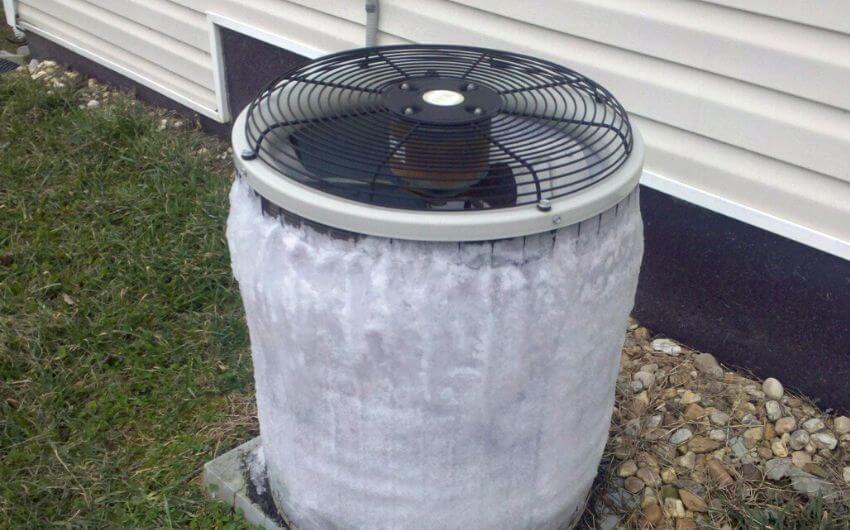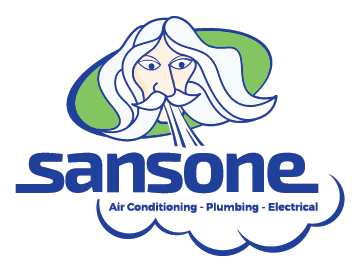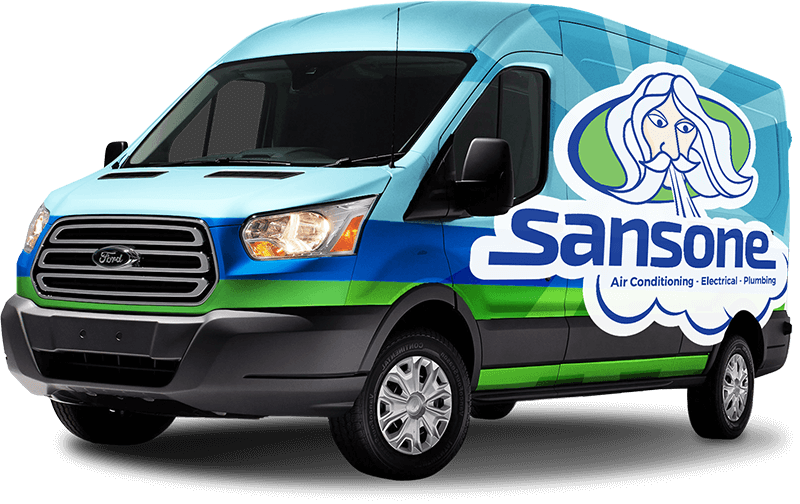
Your air conditioning cools your home by transferring heat from one place to another, using a refrigerant to cool the hot air. Your system’s evaporator coils are one of two core components of your air conditioner that enable the evaporation of refrigerant from its liquid form to gas while absorbing heat. Essentially, this turns hot air into cold air and transports it through your air ducts and supply vents.
Put simply, no evaporator coil means no cool air — which is the last thing any Florida homeowner wants to be challenged with on a hot summer’s day. But, when your evaporator coil freezes over that’s exactly what you’re stuck with — a hot, humid home in the dead of summer. So, what exactly causes your evaporator coil to freeze? What are the signs you need to be aware of? And, how do you fix the problem? Our team at Sansone has the answers to all of your pressing frozen AC evaporator coil questions.
What causes a frozen evaporator coil?
When heat is unable to be cooled with the refrigerant, AC problems arise — like a frozen evaporator coil. That’s because when this happens, the refrigerant in the line becomes increasingly chillier without any heat to absorb — causing it to freeze over. But, what causes this to happen in the first place? Essentially anything that disrupts airflow to the evaporator coil can freeze it. Below are some of the most common causes.
3 Common Causes of a Frozen Evaporator Coil
1. Dirty Coil
As with most parts of your AC system, the AC’s evaporator coil will accumulate dirt, dust, and other debris over time. As a result, this component cannot be neglected, as the build-up of debris will block the airflow it needs to properly function. When your coil is unable to move heat like it is designed to, this part of the system keeps cooling — causing it to eventually freeze over. The good news is evaporator coil cleaning is an important part of all AC tune-ups and can be prevented with routine maintenance.
2. Clogged AC Drain Line
Another common cause of a frozen evaporator coil is a clogged AC drain line. When your drain line is clogged, it’s unable to expel water that builds up in your AC system. Consequently, your system’s evaporator coil will freeze. Additionally, the excessive moisture in the condensate drain line will also freeze, forcing your AC to malfunction and shut off. Fortunately, cleaning your AC drain line is a simple DIY task that doesn’t always require a service visit. Learn how to unclog your AC drain line by following our step-by-step guide.
3. Blocked Air Ducts
Many homeowners have fallen for the myth that closed air vents can help save money — but this couldn’t be farther from the truth. In fact, closed air vents can cause a myriad of AC issues — including leaking air ducts and frozen evaporator coils. When your air vents are closed off, airflow is disrupted which puts your air ducts under a significant amount of pressure, causing them to tear and leak. Additionally, the return airflow to the coil will not receive the airflow needed to operate properly, which can result in a frozen evaporator coil. Check to ensure all air vents are open and unobstructed by making sure you haven’t unintentionally blocked airflow with furniture, rugs, and other household items. Additionally, keep on top of replacing your air filters regularly, as dirty air filters can also inhibit proper airflow and cause this problem.
Related: 5 Problems Caused by Closed AC Vents
Signs of a Frozen Evaporator Coil
Are you concerned your evaporator coils could be frozen? Be on the lookout for the following signs:
- Your AC is not cooling.
- Ice is present around the outdoor refrigerant line.
- Your evaporator coil has condensation and/or ice forming on it.
- The condensate drain line is clogged.
- The condensate drain pan is overflowing.
How to Fix a Frozen AC Evaporator Coil
While troubleshooting a frozen AC evaporator coil can often be handled by the homeowner, fixing the problem will require a professional HVAC technician. However, if your evaporator coil is frozen, there are a couple of things you can do to prepare before your technician arrives.
- Turn Off the AC and Adjust the Fan Settings. Turn off your AC at the thermostat to prevent further damage. Adjust your fan switch to the “fan-only” setting. Doing this will blow warm air over the coils, helping the ice melt faster.
- Replace Clogged Air Filters. If your filters are dirty, they’re contributing to the problem. Make sure to replace your air filters regularly. We recommend replacing them about once per month.
AC Service in South Florida
Don’t let a frozen evaporator disrupt the comfort of your home. If you need AC service, Sansone is here to help. South Florida homeowners can always rely on us to provide fast and efficient AC service. Don’t spend another minute uncomfortable in your own home today. Contact us today or conveniently schedule an appointment online to get started.
Broward: (954) 800-2858
Palm Beach: (561) 701-8274
St. Lucie: (772) 879-5656

